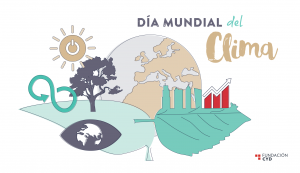CYD Foundation highlights role of Miguel Hernández University in fight against climate change
 To commemorate World Climate Day, the Fundación Conocimiento y Desarrollo (Knowledge and Development Foundation, or CYD) analyzed the commitment by Spanish universities in the fight against climate change. The CYD report highlights the role of the Miguel Hernández University of Elche (UMH) as one of the Spanish institutions that received the highest marks in the Impact Ranking produced by Times Higher Education.
To commemorate World Climate Day, the Fundación Conocimiento y Desarrollo (Knowledge and Development Foundation, or CYD) analyzed the commitment by Spanish universities in the fight against climate change. The CYD report highlights the role of the Miguel Hernández University of Elche (UMH) as one of the Spanish institutions that received the highest marks in the Impact Ranking produced by Times Higher Education.
This foundation, which is led by Ana Botín, has the mission of analyzing and responding to the realities of Spanish universities. Its analysis underscored the role of the UMH in the promotion of Sustainable Development Goals 8 and 13 (Decent Work & Economic Growth and Climate Action, respectively), because the UMH focuses its university policies on responsible production and consumption, with sustainability the main axis of this policy and the central point in its new strategic plan.
Along these lines, the CYD highlighted the UMH 2030 Plan of Energy Efficiency and Decarbonization, the calculation and registration of its carbon footprint and the capture of carbon dioxide, the gradual substitution of air conditioning equipment (adapting them to newer regulations that require the use of equipment with fewer greenhouse gases), its energy savings plan with measures such as automatic control of electricity consumption on all premises, forestation and environmental awareness activities, in addition to the UMH initiative of more sustainable mobility via a mobile app for sharing vehicles and promoting bicycles.
What’s more, the CYD Foundation also emphasized the possibilities the UMH offers in terms of training in this area, as the university already provides training on the Sustainable Development Goals and the 2030 UN Agenda for the entire university community. The UMH also teachers various undergraduate and master’s programs on environmental sciences that form future professionals in the area of sustainable intervention to contribute to caring for the environment in all means of action.
These training opportunities include the undergraduate programs of Environmental Science and that of Agro-Food and Agro-Environmental Engineering; the Master’s in Agroecology, Rural Development and Agro-Tourism; Master’s in Automation and Remote Control for Water and Energy Resources Management; Master’s in Solar and Renewable Energy; plus the Master’s in Management, Treatment and Use of Organic Waste, among others.
The UMH is currently among the top 200 of the world’s universities according to the Times Higher Education Impact Rankings. These are the only global performance tables that assess universities versus the Sustainable Development Goals of the United Nations. Using carefully calibrated indicators, the Impact Rankings provide complete and balanced comparisons in four broad areas: research, stewardship, outreach, and teaching.